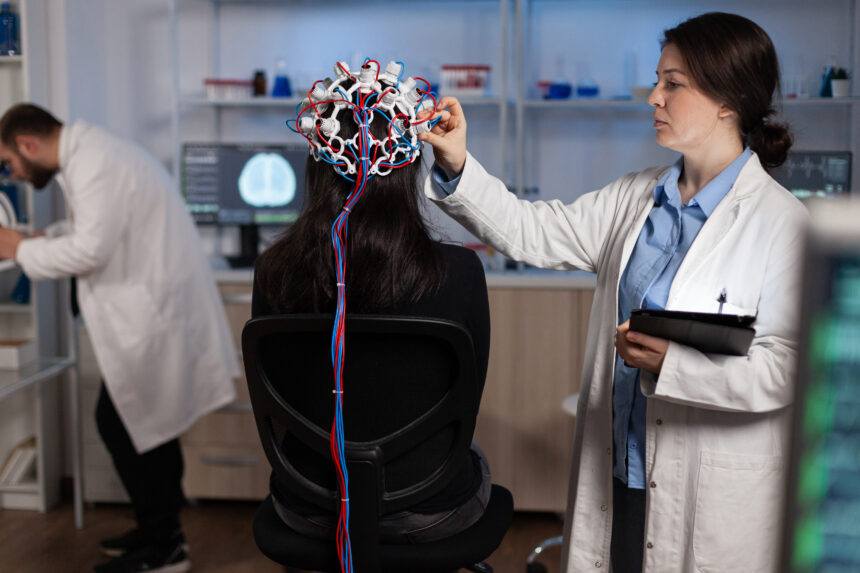The modern world is constantly seeking various tools and solutions to present challenges, which arise due to the fast pace of life, high level of stress and paradoxically intense use of technology. Human mind gets more and more strained every day, causing insomnia, stress overload, and other neurological disorders. Brain-computer interfaces (BCI) have a huge role in the analysis of these syndromes and help find solutions. The technology can also be utilized for mind-controlled games, or to adjust marketing techniques to the reaction of the human mind. What nowadays challenges are faced by BCI Technologies?
#1 Controlling devices
One of the most recent applications of brain-computer interface (BCI) technology is the decoding of brain signals and their translation into actionable commands. This advancement has allowed individuals to control computers and other devices like keyboards or mice by improving the power of neural signals. Stephen Hawking’s life was a great example of how powerful the human brain can be, showing that disabilities cannot hinder people from leading lives that are close to those of healthy people.
BCI technology is also a great tool for individuals with prosthetic limbs that can be operated through brain control. This technology can also be used to control wheelchairs, allowing users to move around with ease. In hazardous conditions, assistive robots can be utilized, and instructions can be given to them remotely to complete tasks.
#2 Mind-controlled computer games
Neuroscience and entertainment can be combined to allow users to play interactive games using BCI technology. EEG sets, such as BrainAccess detect brain activity and translate it into game commands, resulting in immersive experiences for players. With no need for traditional controllers, gamers’ reactions are much faster and appear simultaneously with their thoughts, without the delay that can occur between the idea and hand movement.
#3 Assessing the human mind condition
The modern world’s challenges, stress and intense use of technology lead to insomnia and stress overload. BCI technology can help assess tiredness, focus, and relaxation, which can be especially useful for people working on critical tasks. The assessment can improve their productivity.
Sleep disorders such as insomnia, sleep apnea, or parasomnias. The technology shows when and how often the disorders appear, to show what can be done to improve the condition of sleep.
#4 Neuromarketing for more effective advertising
Neuromarketing specialists find BCI technology to be an incredibly useful tool for their work. This technology monitors the brain activity and physiological responses of consumers when they are exposed to marketing stimuli. By analyzing their attention, emotions, and memory encoding, marketers can gain valuable insight into the subconscious drivers of consumer behavior.
#5 Neuroscience and brain illnesses detection
BCI technology is a powerful tool for neuroscientists, giving them insight into the human brain. They can use the knowledge for understanding, diagnosing, and potentially treating a wide range of neurological disorders.
By analyzing the patterns of brain activity that the BCI system provides, scientists can identify biomarkers associated with specific conditions, making it possible to early detect and differentiate disorders such as epilepsy, Parkinson’s disease, and depression.
Neurofeedback training, a form of biofeedback facilitated by BCI technology, enables individuals to learn to self-regulate their brain activity. This approach has shown potential in the treatment of attention-deficit/hyperactivity disorder (ADHD), post-traumatic stress disorder (PTSD), and chronic pain by promoting neural plasticity and improving cognitive function.






